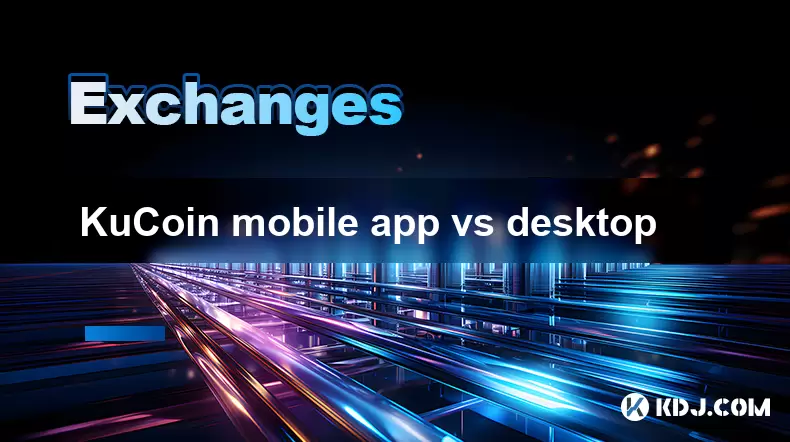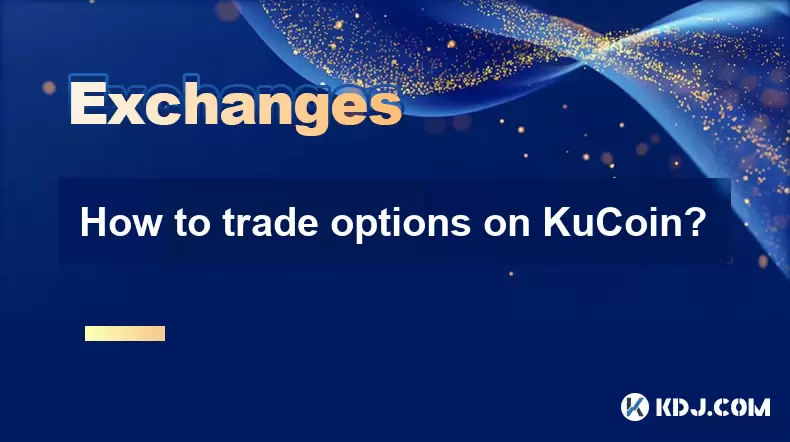-
 Bitcoin
Bitcoin $117400
-0.46% -
 Ethereum
Ethereum $3768
0.60% -
 XRP
XRP $3.551
2.09% -
 Tether USDt
Tether USDt $1.000
0.00% -
 Solana
Solana $203.2
11.30% -
 BNB
BNB $770.9
1.92% -
 USDC
USDC $0.9999
0.01% -
 Dogecoin
Dogecoin $0.2709
-0.02% -
 Cardano
Cardano $0.9024
4.49% -
 TRON
TRON $0.3139
0.60% -
 Hyperliquid
Hyperliquid $45.60
-1.41% -
 Stellar
Stellar $0.4730
-1.34% -
 Sui
Sui $4.025
2.15% -
 Chainlink
Chainlink $19.79
2.19% -
 Hedera
Hedera $0.2724
-2.39% -
 Avalanche
Avalanche $25.93
3.05% -
 Bitcoin Cash
Bitcoin Cash $524.0
-1.83% -
 Shiba Inu
Shiba Inu $0.00001558
0.50% -
 Litecoin
Litecoin $116.7
-0.30% -
 UNUS SED LEO
UNUS SED LEO $8.996
0.00% -
 Toncoin
Toncoin $3.334
1.83% -
 Polkadot
Polkadot $4.506
0.34% -
 Uniswap
Uniswap $10.99
4.83% -
 Ethena USDe
Ethena USDe $1.001
0.03% -
 Pepe
Pepe $0.00001461
3.17% -
 Monero
Monero $320.3
-1.01% -
 Bitget Token
Bitget Token $4.935
0.36% -
 Dai
Dai $0.9998
0.00% -
 Aave
Aave $322.4
-1.25% -
 Bittensor
Bittensor $455.6
9.33%
How to buy Coinbase stock?
Coinbase (COIN), listed on Nasdaq since April 2021, offers investors exposure to the crypto market without directly buying digital assets.
Jul 21, 2025 at 06:49 pm

Understanding Coinbase and Its Stock Offering
Coinbase is one of the most recognized cryptocurrency exchanges in the United States. Originally established in 2012, the platform allows users to buy, sell, and store various cryptocurrencies. For investors looking to gain exposure to the crypto market without directly purchasing digital assets, investing in Coinbase stock is an appealing option. In April 2021, Coinbase went public via a direct listing on the Nasdaq under the ticker symbol COIN. This event marked a significant milestone for the crypto industry, as it was one of the first major crypto-native companies to enter the traditional stock market.
Unlike traditional initial public offerings (IPOs), a direct listing does not involve issuing new shares or underwriting by investment banks. Instead, existing shareholders, including employees and early investors, are able to sell their shares directly to the public. This means that COIN stock was available for purchase by retail investors from the very first day of trading, without a lock-up period.
Choosing the Right Brokerage Platform
Before you can buy Coinbase stock, you need access to a brokerage account that allows you to trade on U.S. stock exchanges. There are numerous platforms available, each with its own features and fee structures. Some popular options include Robinhood, E-Trade, TD Ameritrade, Interactive Brokers, and Webull. When selecting a brokerage, consider factors such as commissions, account minimums, user interface, research tools, and customer support.
Once you’ve chosen a platform, you’ll need to complete the sign-up process, which typically involves providing personal information, verifying your identity, and linking a bank account. After your account is approved and funded, you can begin searching for COIN stock. Most platforms offer a search bar or stock screener where you can look up companies by name or ticker symbol.
Placing Your Trade for Coinbase Stock
After locating COIN on your brokerage’s trading platform, you’ll need to decide on the type of order you want to place. The most common types of orders are:
- Market order: Executes immediately at the current market price.
- Limit order: Allows you to set a specific price at which you’re willing to buy.
- Stop order: Triggers a market order once the stock reaches a specified price.
For example, if Coinbase stock is trading at $250 per share and you’re comfortable buying at that price, a market order is appropriate. However, if you believe the stock may drop to $230 before rising again, you might place a limit order at $230 to ensure you don’t pay more than your target price.
It’s important to review your order carefully before submitting it. Double-check the number of shares, the order type, and the price if applicable. Once you confirm the trade, your brokerage will execute it, and the shares will appear in your portfolio shortly.
Understanding the Risks and Volatility
Investing in Coinbase stock comes with risks, especially due to its close ties to the cryptocurrency market. While the company has grown significantly since its inception, its financial performance is heavily influenced by crypto prices and trading volumes. When Bitcoin or Ethereum prices surge, Coinbase often sees increased user activity and higher revenue. Conversely, during market downturns, the company may experience reduced trading volumes and lower profits.
Additionally, regulatory risks are a major concern for Coinbase. As a U.S.-based exchange, it must comply with evolving financial regulations. Any unfavorable regulatory developments could impact the company’s operations and stock price. Therefore, investors should be aware of these market dynamics and assess whether COIN stock aligns with their investment strategy and risk tolerance.
Monitoring Your Investment and Staying Informed
After purchasing Coinbase stock, it’s essential to monitor your investment and stay updated on company news and financial reports. Coinbase regularly releases quarterly earnings reports that provide insights into its revenue, user growth, and operational performance. You can access these reports through the Investor Relations section of the company’s website or via your brokerage platform.
In addition to earnings reports, investors should follow regulatory updates, product launches, and industry trends. For example, Coinbase has been expanding into new services such as Coinbase Wallet, Coinbase Exchange, and Coinbase Prime, which could influence its long-term growth prospects. Keeping track of these developments can help you make informed decisions about holding or selling your COIN shares.
Frequently Asked Questions (FAQs)
Q: Can I buy Coinbase stock directly from the company?
A: No, Coinbase does not offer a direct stock purchase plan. You must buy COIN stock through a brokerage platform that provides access to Nasdaq-listed securities.
Q: Is Coinbase stock available on international exchanges?
A: Yes, some international brokers allow investors outside the U.S. to trade COIN stock. However, availability depends on your brokerage and local market regulations.
Q: What is the difference between COIN and CBSEF stock?
A: COIN is the ticker symbol for Coinbase shares on the Nasdaq. CBSEF is the over-the-counter (OTC) ticker used by some international investors who cannot access U.S. exchanges directly. OTC stocks often have lower liquidity and wider bid-ask spreads.
Q: Does Coinbase pay dividends?
A: As of now, Coinbase does not pay dividends. The company has focused on reinvesting profits into growth initiatives rather than distributing them to shareholders.
Disclaimer:info@kdj.com
The information provided is not trading advice. kdj.com does not assume any responsibility for any investments made based on the information provided in this article. Cryptocurrencies are highly volatile and it is highly recommended that you invest with caution after thorough research!
If you believe that the content used on this website infringes your copyright, please contact us immediately (info@kdj.com) and we will delete it promptly.
- Bitcoin, Trump Media, and a Stock Boost: A New York Minute on Crypto & Politics
- 2025-07-22 15:30:12
- Solana Ecosystem Tokens Surge: Riding the Wave to New Highs?
- 2025-07-22 15:30:12
- Bitcoin, Render Token, and Resistance Levels: A New Yorker's Take
- 2025-07-22 15:50:12
- MoonBull's Whitelist Mania: Your Last Shot at 100x Crypto Gains?
- 2025-07-22 10:30:12
- Meme Coins in 2025: Explosive Gains or Fading Fad?
- 2025-07-22 10:30:12
- Kim Keon-hee Crypto Probe: Scandal Rocks South Korea's Political Scene
- 2025-07-22 10:50:12
Related knowledge

KuCoin mobile app vs desktop
Jul 19,2025 at 08:35am
Overview of KuCoin Mobile App and Desktop PlatformThe KuCoin ecosystem offers both a mobile app and a desktop platform, each designed to cater to diff...

Is KuCoin a decentralized exchange?
Jul 18,2025 at 03:15pm
Understanding Decentralized Exchanges (DEXs)To determine whether KuCoin is a decentralized exchange, it's essential to first understand what defines a...

How to trade options on KuCoin?
Jul 19,2025 at 03:42am
Understanding Options Trading on KuCoinOptions trading on KuCoin allows users to speculate on the future price movements of cryptocurrencies without o...

What are KuCoin trading password rules?
Jul 20,2025 at 07:56am
Understanding the Purpose of a Trading Password on KuCoinOn KuCoin, a trading password serves as an additional layer of security beyond the standard l...

Who is the CEO of KuCoin?
Jul 20,2025 at 09:35am
Background of KuCoinKuCoin is one of the largest cryptocurrency exchanges globally, known for its diverse range of trading pairs and user-friendly int...

Lost Google Authenticator for KuCoin
Jul 19,2025 at 02:35am
Understanding the Importance of Google Authenticator in KuCoin SecurityGoogle Authenticator is a critical tool used by KuCoin users to enable two-fact...

KuCoin mobile app vs desktop
Jul 19,2025 at 08:35am
Overview of KuCoin Mobile App and Desktop PlatformThe KuCoin ecosystem offers both a mobile app and a desktop platform, each designed to cater to diff...

Is KuCoin a decentralized exchange?
Jul 18,2025 at 03:15pm
Understanding Decentralized Exchanges (DEXs)To determine whether KuCoin is a decentralized exchange, it's essential to first understand what defines a...

How to trade options on KuCoin?
Jul 19,2025 at 03:42am
Understanding Options Trading on KuCoinOptions trading on KuCoin allows users to speculate on the future price movements of cryptocurrencies without o...

What are KuCoin trading password rules?
Jul 20,2025 at 07:56am
Understanding the Purpose of a Trading Password on KuCoinOn KuCoin, a trading password serves as an additional layer of security beyond the standard l...

Who is the CEO of KuCoin?
Jul 20,2025 at 09:35am
Background of KuCoinKuCoin is one of the largest cryptocurrency exchanges globally, known for its diverse range of trading pairs and user-friendly int...

Lost Google Authenticator for KuCoin
Jul 19,2025 at 02:35am
Understanding the Importance of Google Authenticator in KuCoin SecurityGoogle Authenticator is a critical tool used by KuCoin users to enable two-fact...
See all articles

























































































